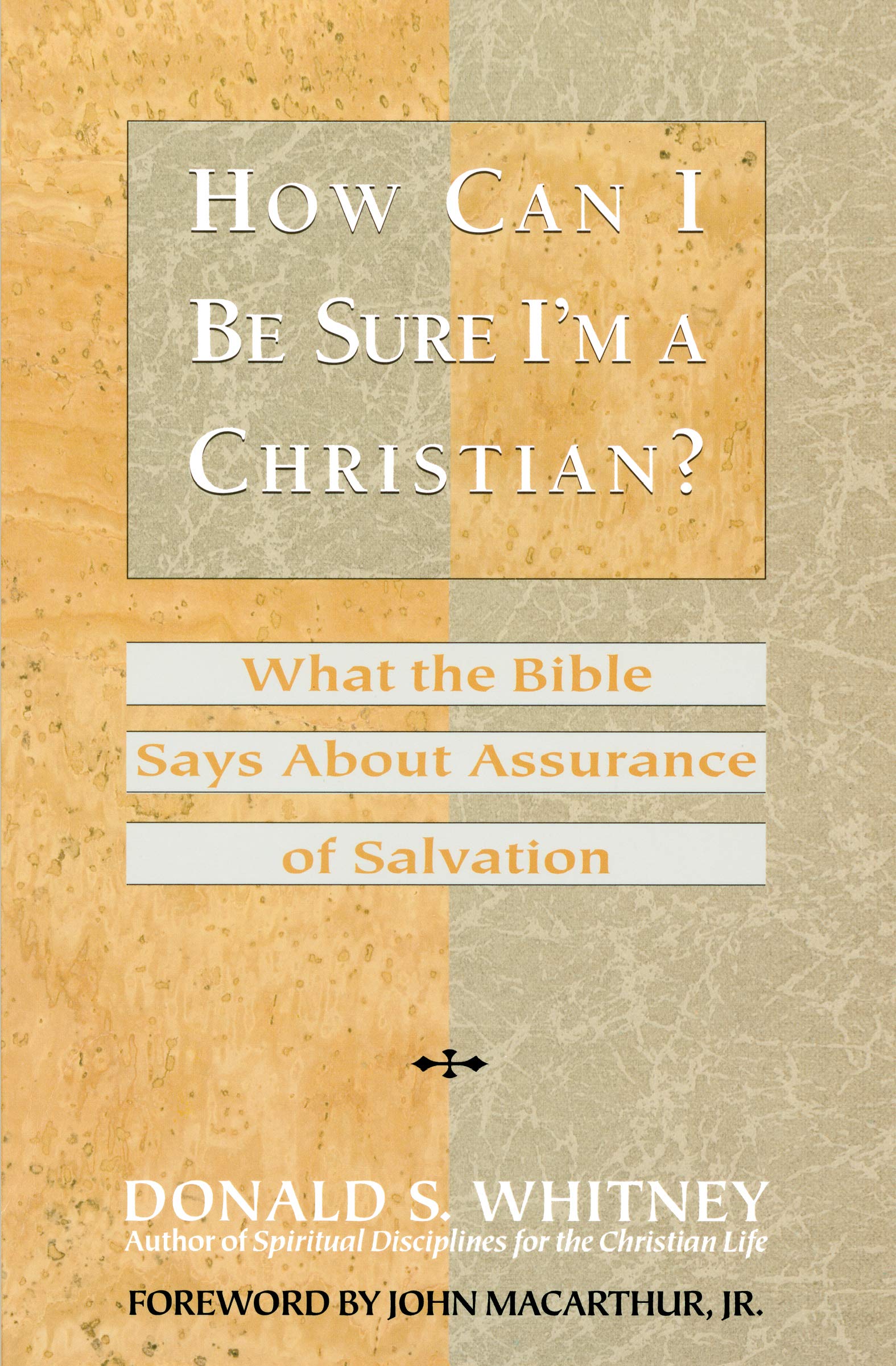A Brief Book Summary from Books At a Glance
By William Voris
Overview
This book takes a serious look into the question of how a Christian can have assurance of salvation. Whitney discusses the idea of assurance, what it is and isn’t, and some of the elements that go into a discussion on the topic. He points out what should be evident in those that are saved and what is evident in those that are not. Whitney touches on some of the biggest issues regarding assurance what impacts both positively and negatively for believers. He even goes so far as to offer suggestions to those that are struggling with assurance in their own lives.
Table of Contents
1 Assurance of Salvation-Is It Possible?
2 Having Doubts About Your Salvation
3 The Basis of Assurance
4 An Inner Confirmation
5 Signs of Eternal Life
6 A Spiritual Mind-Set
7 Things That Erode Our Assurance
8 Common Problems With Uncertainty
9 False Assurance of Salvation
10 What to Do If You’re Still Not Sure
Summary
Chapter 1: Assurance of Salvation-Is It Possible?
Before we can obtain assurance of salvation we need to determine if it is even possible to obtain or acquire assurance. Is it normal for a Christian to experience assurance or question their assurance? Surveys suggest that 99% of Americans agree that they will go to heaven when they die and only one in a hundred will agree that they won’t. The Bible tends to disagree with this assumption about the number of people going to heaven using words and phrases such as in Matthew 7:13-14 indicating that many people will enter into destruction and few will find the way that leads to life.
It is possible, indeed normal, for the Christian to experience assurance of salvation.
There are many verses that suggest that the Christian should have assurance of salvation and that it is normal for the Christian to seek out this assurance. There are those in the Christian community that say such an assurance of salvation is not possible. Beginning with Romans 8:16, the Spirit himself testifies that we are God’s children. Then in 2 Timothy 1:12, Paul says “I know whom I have believed, and am convinced that he is able to guard what I have entrusted to him for that day”. Paul expressed in these verses that the Christian should have some sort of expressed assurance that they are saved. 2 Peter 1:10 commands “therefore, brethren, be all the more diligent to make certain about His calling and choosing you”. This shows that the Christian should make an effort to pursue assurance, not merely assume or dismiss the topic. The clearest example of all is 1 John 5:13 where the Apostle John tells his audience that he is writing this letter so that they may know that they have eternal life.
Assurance is not to be bound to tightly to faith either, while there may be some intrinsic connection, having a lack of assurance doesn’t denote a lack of faith or lack of salvation. Unshakable assurance is not necessary for salvation to be real, and based on the previous verses mentioned, assurance of salvation was a pursuit of early Christians.
It is possible, indeed normal, for a non-Christian to have a false assurance of salvation.
While some may doubt their salvation, there are many who don’t that should. Remembering the survey mentioned previously, most Americans think they are going to heaven. Yet, in Matthew 7:22-23, many who think they are going to heaven are going to be turned away on Judgement Day. The Pharisees were a biblical example of this group of people that don’t doubt, but should. They were at odds with the teaching of Jesus, but were sure of their standing with God, and Jesus used some of his harshest words for them and their actions. The key issues with those that don’t doubt their salvation but should, is that their salvation is based on other things than the Word of God. Those that fall into this group are usually unconcerned with assurance and base their assurance on personal works or righteousness.
Chapter 2: Having Doubts About Your Salvation
Occasional doubt about assurance is a normal experience for Christians to have. C. H. Spurgeon was a Baptist preacher during the 1800’s. More than 6,000 people gathered weekly to hear him preach and he sometimes had crowds over 20,000 come to hear him speak. He has more published sermons and writings than any other author on Christianity, and his works are read more than any others outside of the Bible. Still in some of his personal writings it is cleared that he would still have the occasional doubt about if he was truly accepted by God. Showing that even some of the most gifted Christians still face doubts about their salvation, so it is only normal that the less gifted would experience similar doubts.
Doubting assurance is not the same as unbelief. Doubt is qualitatively different from unbelief in that it is merely being unsure of a position. This commonly seen when a Christian may be confronted by a critic who points out a position from the Bible that the Christian is unprepared to answer and is. . .
[To continue reading this summary, please see below....]The remainder of this article is premium content. Become a member to continue reading.
Already have an account? Sign In
